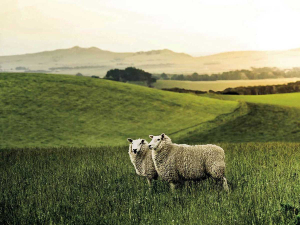China’s new beef tariffs expected to favour New Zealand exporters
Additional tariffs introduced by the Chinese Government last month on beef imports should favour New Zealand farmers and exporters.
 Managing Director of Prism, Matt Lythe, says the company will help primary producers face up to critical challenges such as developing diversified revenue streams, adjusting to changing climatic conditions, meeting emissions targets, and responding to changing buyer behaviour.
Managing Director of Prism, Matt Lythe, says the company will help primary producers face up to critical challenges such as developing diversified revenue streams, adjusting to changing climatic conditions, meeting emissions targets, and responding to changing buyer behaviour.
A new technology company has been formed which will help New Zealand’s farmers and primary sector better understand and capitalise on their natural vegetation and biodiversity.
Wellington-based Lynker Analytics has teamed up with red meat exporter and marketer, Silver Fern Farms Ltd, to form a new joint venture called Prism Earth Ltd (Prism).
Managing Director of Prism, Matt Lythe, says the company will help primary producers face up to critical challenges such as developing diversified revenue streams, adjusting to changing climatic conditions, meeting emissions targets, and responding to changing buyer behaviour.
“Prism delivers an integrated set of capabilities including carbon and biodiversity mapping, climate risk analysis, and farm-scale land use simulation to help farmers understand, budget for, and adapt to climate and biodiversity challenges and opportunities,” says Lythe.
“We’ll build on the technology developed by Lynker Analytics, including the award-winning Net Carbon Zero Mapping System which uses remote sensing and artificial intelligence to map, classify and age woody vegetation on grazing land at sub-hectare scales,” he says.
Alongside artificial intelligence (AI), Prism also uses sensor data, geospatial analytics and visualisation software to deliver their services.
Lythe says that Prism will not only support primary producers to realise the potential from their on-farm vegetation and biodiversity, but also help them to prepare for the impacts of climate change and increasing trade and market requirements.
“Future climate has the potential to drive major shifts in land use. These impacts won’t be distributed equally, and the level of adaptation needed will depend on location, land use, and exposure of the farm,” says Lythe.
“As previously suitable climatic conditions change, it is likely that pasture yields will shift and summer water demands will increase. Nitrate leaching could also be more variable, erosion rates can increase, and increasing heat stress could affect animal welfare and milk production from dairy cows.
“We’re also seeing growing global requirements on a range of sustainability measures, through which trusted and verifiable data will play a key role in supporting farmers to navigate market access and realise the opportunities available,” he says.
As well as AI-enabled mapping of carbon (woody vegetation), deforestation, erosion, and invasive plants such as Nassella and Gorse/broom, Prism will work extensively with catchment groups to model science-based long term land use adaptation in economic, environmental, social, and cultural terms. This work will commence at Arai Te Uru Awa, a 23,000ha hill country catchment 10km southwest of Gisborne.
Prism will be headquartered in Wellington and is powered by Lynker Analytics who will continue to develop and deliver AI solutions to a wide range of environmental challenges.
OPINION: "We are back to where we were a year ago," according to a leading banking analyst in the UK, referring to US president Donald Trump's latest imposition of a global 10% tariff on all exports into the US.
DairyNZ says the Government’s proposed Resource Management Act reform needs further work to ensure it delivers on its intent.
Overseas Trade Minister Todd McClay says he's working constructively with the Labour Party in the hope they will endorse the free trade agreement (FTA) with India when the agreement comes before Parliament for ratification.
Donald Trump's latest tariff tantrum has again thrown the world of trade into a new round of turmoil and uncertainty, and NZ is caught up in it.
The third edition of the NZ Dairy Expo, held in mid-February in Matamata, has shown that the KISS principle (keep it simple stupid) was getting a positive response from exhibitors and visitors alike.
Twenty years ago, South African dairy farm manager Louis Vandenberg was sent to a farm in Waikato to provide training on Afimilk technology.

OPINION: A mate of yours truly reckons rural Manawatu families are the latest to suffer under what he calls the…
OPINION: If old Winston Peters thinks building trade relations with new nations, such as India, isn't a necessary investment in…